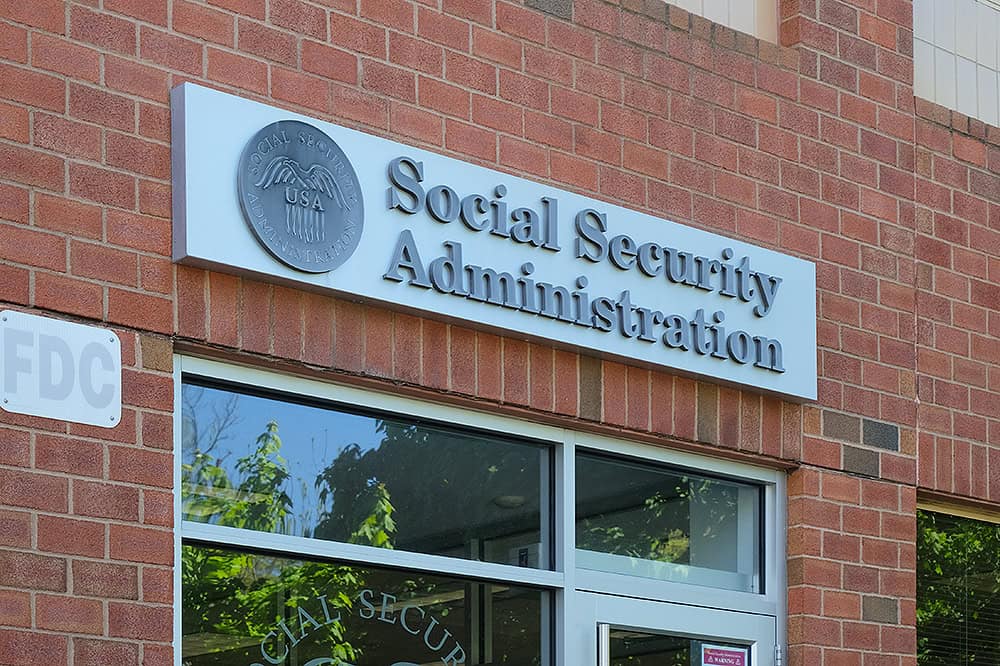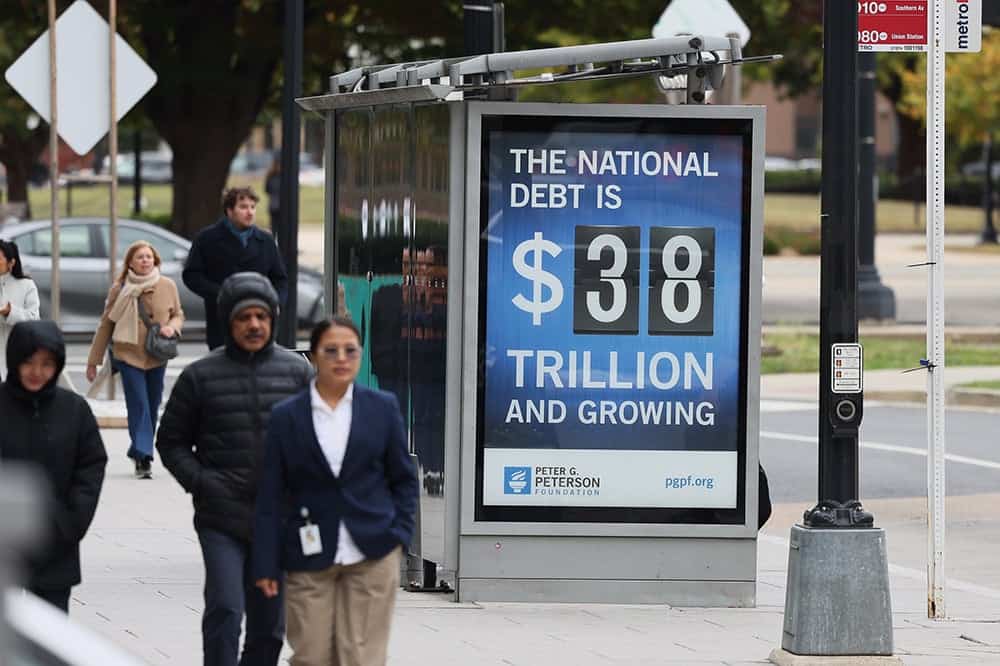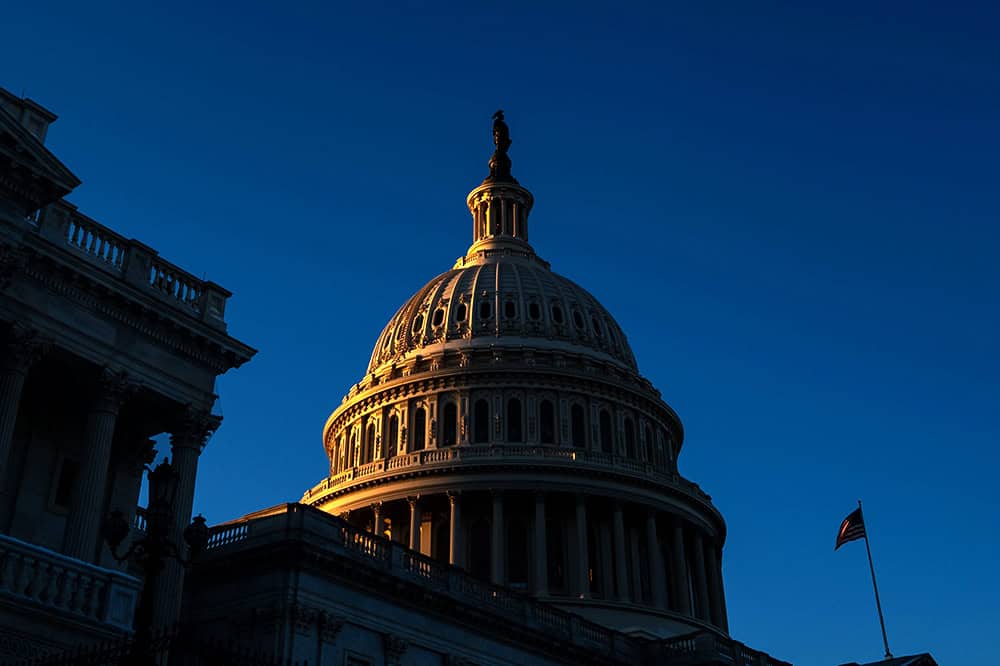Fiscal Confidence Drops to Lowest Since 2014 as Nation Continues to Confront Significant Health, Economic Impact of Coronavirus
The June 2020 Fiscal Confidence Index, Modeled after the Consumer Confidence Index, is 43 (100 is Neutral)
NEW YORK (June 30, 2020) — As the coronavirus crisis continues to inflict significant damage to the health and economic well-being of the nation, and while lawmakers consider additional response measures, Americans’ fiscal confidence fell to the lowest level since September 2014, according to the Peter G. Peterson Foundation’s monthly Fiscal Confidence Index. The June Fiscal Confidence Index, modeled after the Consumer Confidence Index, is 43 (100 is neutral), indicating that in the midst of this unprecedented crisis, voters are also concerned about the national debt and preparedness for the future.
With the national debt surpassing $26 trillion and increasing $1 trillion in just the last month, strong majorities of Democrats (75%), independents (71%), and Republicans (85%) want Congress to spend more time addressing the national debt for the future.
Two in three voters (67%) believe that the nation is on the wrong track when it comes to its debt, a 7-point increase from the previous month and a six-year high. Among millennial and Gen Z voters (ages 18 to 34) wrong-track concern increased by 10 points this month to 65%.
“America’s top policy priority right now is defeating this virus and helping the millions of Americans who are suffering economically, but as we look ahead it’s clear that Americans are growing more concerned about how we will deal with our national debt once this crisis ends,” said Michael A. Peterson, CEO of the Peterson Foundation. “This crisis has shown how critical it is for our nation to be prepared for the unexpected, and voters understand that putting our debt on a sustainable path is an essential part of building a stronger future, where the nation is better prepared.”
The Fiscal Confidence Index measures public opinion about the national debt by asking six questions in three key areas:
- CONCERN: Level of concern and views about the direction of the national debt.
- PRIORITY: How high a priority addressing the debt should be for elected leaders.
- EXPECTATIONS: Expectations about whether the debt situation will get better or worse in the next few years.
The survey results from these three areas are weighted equally and averaged to produce the Fiscal Confidence Index value. The Fiscal Confidence Index, like the Consumer Confidence Index, is indexed on a scale of 0 to 200, with a neutral midpoint of 100. A reading above 100 indicates positive sentiment. A reading below 100 indicates negative sentiment.
Fiscal Confidence Index Key Data Points:
- The June 2020 Fiscal Confidence Index value is 43. (The May value was 49. The April value was 47.)
- The current Fiscal Confidence Index score for CONCERN about the debt is 34, indicating deep concern about the debt. The score for debt as a PRIORITY that leaders must address is 34, indicating that Americans want elected leaders to make addressing long-term debt a high priority. The score for EXPECTATIONS about progress on the debt is 61. The Fiscal Confidence Index is the average of these three sub-category scores.
- For a description of the complete methodology, see the Appendix below.
The Peter G. Peterson Foundation commissioned this poll by the Global Strategy Group and North Star Opinion Research to survey public opinion on the national debt. The online poll included 1,005 registered voters nationwide, surveyed between June 22, 2020 and June 25, 2020. The poll has a margin of error of +/- 3.1%. The poll examined voters’ opinions on the national debt, political leadership, and America’s fiscal and economic health.
Detailed poll results can be found online at: www.pgpf.org/FiscalConfidenceIndex.
About the Peter G. Peterson Foundation
The Peter G. Peterson Foundation is a nonprofit, nonpartisan organization that is dedicated to increasing public awareness of the nature and urgency of key fiscal challenges threatening America’s future, and to accelerating action on them. To address these challenges successfully, we work to bring Americans together to find and implement sensible, long-term solutions that transcend age, party lines and ideological divides in order to achieve real results. To learn more, please visit www.pgpf.org.
APPENDIX: Fiscal Confidence Index Methodology and Questions
- The Fiscal Confidence Index is released monthly by the Peter G. Peterson Foundation.
- The Fiscal Confidence Index value is based on six questions in three categories.
- As is done with the Consumer Confidence Index, the first step in calculating the Fiscal Confidence Index is determining the “Relative Value” for each question. This calculation is made by taking the positive response for each question and dividing it by the sum of the positive and negative responses. Each question was asked on a four-point scale, and answers were weighted according to intensity, with the strongest responses counting twice as much as the middle responses (“much” better or worse answers count twice as heavily as “somewhat” better or worse answers).
- The scores for the Concern, Priority, and Expectations categories are determined by averaging the scores derived from the two questions in each category.
- The Fiscal Confidence Index value is converted from the Relative Value to place it on a scale on which 100 indicates equal positive and negative sentiment, while values below 100 indicate negative sentiment and values above 100 indicate positive sentiment.
- The questions are as follows:
| CONCERN (34) | |||
|---|---|---|---|
| Thinking about our national debt over the last few years, would you say your level of concern has increased or decreased? ◊ Is that a lot or just a little? |
June 2020 | May 2020 | April 2020 |
| Increased a lot | 50% | 48% | 44% |
| Increased a little | 28% | 28% | 31% |
| Decreased a little | 6% | 7% | 7% |
| Decreased a lot | 3% | 3% | 4% |
| (No change) | 8% | 7% | 9% |
| (Don’t Know/Refused) | 5% | 6% | 6% |
| INCREASED (NET) | 78% | 76% | 75% |
| DECREASED (NET) | 9% | 11% | 10% |
| When it comes to addressing our national debt, would you say things in the United States are heading in the right direction or do you think things are off on the wrong track? ◊ Do you feel that way strongly or just somewhat? |
June 2020 | May 2020 | April 2020 |
| Right direction-Strongly | 9% | 15% | 15% |
| Right direction-Somewhat | 19% | 19% | 18% |
| Wrong track-Somewhat | 27% | 24% | 23% |
| Wrong track-Strongly | 40% | 36% | 37% |
| (Neither/Mixed) | 1 | * | 2% |
| (Don’t Know/Refused) | 4% | 5% | 5% |
| RIGHT DIRECTION (NET) | 28% | 34% | 33% |
| WRONG TRACK (NET) | 67% | 60% | 61% |
| PRIORITY (34) | |||
|---|---|---|---|
| Some people say that addressing the national debt should be among the president and Congress’ top 3 priorities. Do you agree or disagree? ◊ Do you feel that way strongly or just somewhat? |
June 2020 | May 2020 | April 2020 |
| Strongly agree | 44% | 41% | 40% |
| Somewhat agree | 26% | 29% | 27% |
| Somewhat disagree | 16% | 13% | 19% |
| Strongly disagree | 7% | 7% | 6% |
| (Don’t Know/Refused) | 7% | 10% | 8% |
| AGREE (NET) | 70% | 70% | 67% |
| DISAGREE (NET) | 23% | 20% | 25% |
| And when it comes to our national debt, do you think it is an issue that the president and Congress should spend more time addressing or less time addressing? ◊ Would you say a lot (more or less) time or just a little? |
June 2020 | May 2020 | April 2020 |
| A lot more time | 43% | 43% | 41% |
| A little more time | 34% | 34% | 37% |
| A little less time | 8% | 7% | 8% |
| A lot less time | 5% | 5% | 5% |
| (The same amount of time) | 2% | 2% | 3% |
| (Don’t Know/Refused) | 7% | 8% | 6% |
| MORE TIME (NET) | 77% | 77% | 78% |
| LESS TIME (NET) | 13% | 13% | 13% |
| EXPECTATIONS (61) | |||
|---|---|---|---|
| And thinking about our national debt over the next few years, do you expect the problem to get better or worse? ◊ Is that much (better or worse) or just somewhat (better or worse)? |
June 2020 | May 2020 | April 2020 |
| Much better | 7% | 9% | 9% |
| Somewhat better | 17% | 19% | 17% |
| Somewhat worse | 33% | 26% | 39% |
| Much worse | 36% | 38% | 38% |
| (No change) | 2% | 1% | 1% |
| (Don’t know/Refused) | 5% | 6% | 5% |
| BETTER (NET) | 24% | 29% | 26% |
| WORSE (NET) | 69% | 64% | 68% |
| And when it comes to our national debt, are you optimistic or pessimistic that the United States will be able to make progress on our national debt over the next few years? ◊ Would you say you are very (optimistic or pessimistic) or just somewhat? |
June 2020 | May 2020 | April 2020 |
| Very optimistic | 6% | 9% | 7% |
| Somewhat optimistic | 33% | 33% | 33% |
| Somewhat pessimistic | 37% | 34% | 34% |
| Very pessimistic | 18% | 16% | 20% |
| (Neither/Mixed) | 2% | 1% | 2% |
| (Don’t Know/Refused) | 4% | 7% | 5% |
| OPTIMISTIC (NET) | 39% | 42% | 40% |
| PESSIMISTIC (NET) | 55% | 50% | 53% |
Further Reading
Lawmakers are Running Out of Time to Fix Social Security
Without reform, Social Security could be depleted as early as 2032, with automatic cuts for beneficiaries.
What Is the National Debt Costing Us?
Programs that millions of Americans depend on and care about may be feeling a squeeze from interest costs on our high and rising national debt.
Interest Costs on the National Debt Are Reaching All-Time Highs
The most recent CBO projections confirm once again that America’s fiscal outlook is on an unsustainable path — increasingly driven by higher interest costs.


